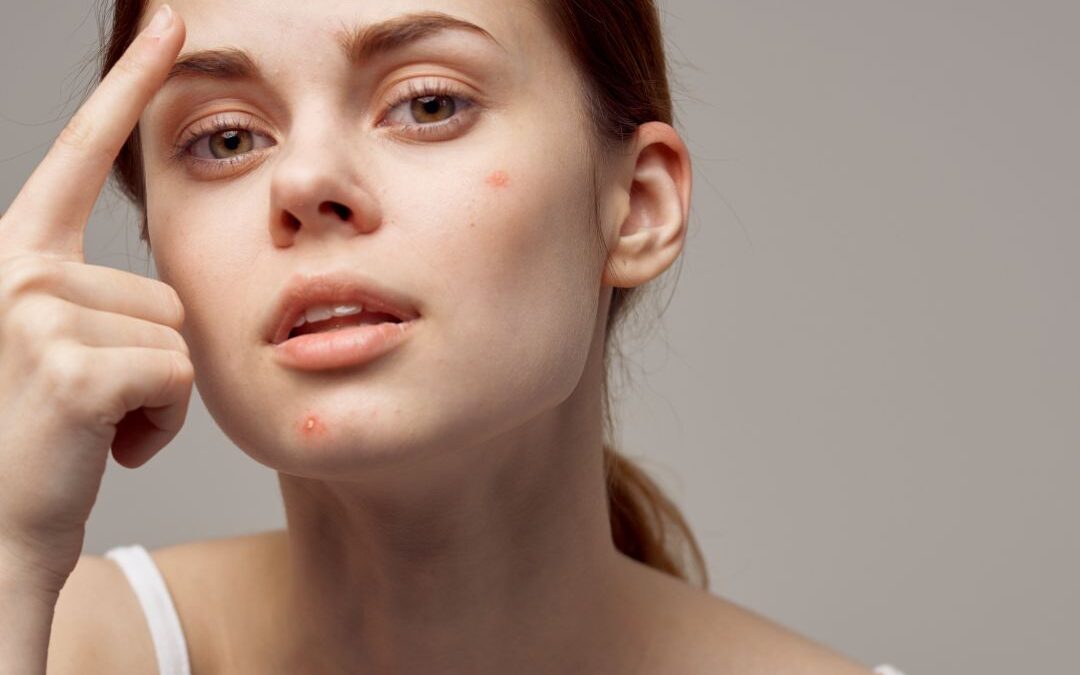Over-the-Counter vs. Prescription Acne Products: Battling with acne can feel like a never-ending quest for clear skin. The shelves in the stores are practically groaning under the weight of acne-fighting products.
But how do you know which ones are right for you?
Today, we’re giving you a front-row seat to the battle between over-the-counter (OTC) and prescription acne treatment products. So, let’s roll up our sleeves and dive right in!

What are Over-the-Counter Acne Products?
OTC acne fighting products are readily available in supermarkets, beauty shops, and online without the need for a prescription. They usually contain milder active ingredients and are designed for general use.
Common Ingredients in OTC Products
- Benzoyl Peroxide: This ingredient kills bacteria and removes excess oil and dead skin cells which can clog pores.
- Salicylic Acid: It helps to unclog pores and is especially effective for blackheads and whiteheads.
- Alpha Hydroxy Acids (AHAs): Glycolic acid and lactic acid are AHAs that help to remove dead skin cells and reduce inflammation.
- Sulfur: This component removes dead skin cells and excess oil, often used in combination with other ingredients.
Prescription Acne Products: The Doctor’s Arsenal
When OTC products don’t make the cut, or if your acne is severe or cystic, your dermatologist might prescribe prescription acne products. These products usually have stronger active ingredients.
Common Ingredients in Prescription Products
- Retinoids: These vitamin A derivatives, like tretinoin, help unclog pores and prevent whiteheads and blackheads.
- Antibiotics: Used to eliminate excess bacteria on the skin and reduce inflammation.
- Oral Contraceptives: These can be prescribed for women to regulate hormones that trigger acne.
- Spironolactone: It works by blocking the effects of androgen hormones on the sebaceous glands.
Matching the Product to the Problem
Knowing which products to use can be half the battle. Mild acne or an occasional breakout might find its nemesis in OTC products. But for moderate to severe acne, or acne that doesn’t respond to OTC products, prescription products are often necessary.
Side Effects and Sensitivities
With great power comes great responsibility. The more potent prescription products can sometimes cause side effects like dryness, peeling, or increased sensitivity to the sun. On the other hand, some people might be sensitive to the ingredients in OTC products.
The Role of a Dermatologist
Visiting a dermatologist is an invaluable step in your acne-fighting journey. They can help identify the type of acne, recommend the most effective treatments, and provide guidance on managing side effects.
Taking a Balanced Approach
Remember that the most effective acne-fighting regimen might involve a combination of both OTC and prescription products. It’s also important to give products time to work; this can sometimes take several weeks or even months.
The Final Word
So, who wins in the battle of Over-the-Counter vs Prescription Acne Products? The answer depends on your unique skin and the type of acne you’re dealing with.
Be open to trying different products, consult a dermatologist, and be patient.



